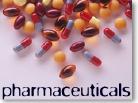|
Serbia drags down ICN
|
 |
July 16, 1998: 3:08 p.m. ET
ICN Pharmaceutical shares plunge 11% on loan default by Yugoslav government
|
NEW YORK (CNNfn) - A far-away ethnic conflict got entangled in Wall Street's ticker tape Thursday, as shares of ICN Pharmaceuticals Inc. nosedived on news a liquidity squeeze in Yugoslavia had caused a government agency to default on loans due ICN, forcing the company to take a $172 million charge in the second quarter.
Shares of Costa Mesa, Calif.-based ICN lost more than 11 percent of their value a day after the company disclosed a Yugoslav government agency had defaulted on about $39 million of notes receivable due ICN Yugoslavia, a regional subsidiary. The agency added it could no longer honor all of its credit agreements.
ICN has notes receivable from the Yugoslav government totalling nearly $176 million. Excluding the non-cash charge, ICN said it still expects to meet expectations for the second quarter. The company noted it does not believe the charge will affect its business outside Yugoslavia, where ICN has invested approximately $35 million through its Montenegro-based subsidiary.
ICN (ICN) stock was down 4-5/16 at 34-5/16 in afternoon trade Thursday on the New York Stock Exchange. At one point, the stock had plummeted nearly 16 percent, dipping briefly below 33.
ICN Yugoslavia called on the Serbian government on Thursday to renegotiate credit terms after the state health fund defaulted on around $39 million of notes payable to ICN, Reuters reported. Pending an outcome to those talks, ICN Yugoslavia has suspended all direct sales to the Yugoslav government.
"We understand the economic hardships of our society. Therefore we have proposed several realistic and mutually acceptable ways to settle the debt," the general manager of ICN Yugoslavia, Ljubisa Rakic, told a news conference.
Can no longer honor terms of credit
More than a year ago, ICN Yugoslavia and the government of Serbia agreed on direct credit sales of drugs made by ICN to cash-strapped Serbian hospitals via the state health fund.
On July 10, the Serbian Health Fund unilaterally terminated the contract, notifying ICN that it could no longer honor the terms of all the credit agreements. ICN Yugoslavia accounts for about 60 percent of the market.
ICN makes and markets prescription and over-the-counter drugs in more than 90 countries in North and Latin America, Europe and the Pacific Rim.
But by far the largest beneficiaries of the firm's global outreach are Eastern Europe and Russia, where ICN racked up $433 million in sales in 1997 - including $134 million in Russia alone - making it the leading pharmaceutical company across the region.
The focus on Eastern Europe is the personal imprint of ICN's flamboyant and controversial chairman, Milan Panic, who built up the company, but briefly returned to his native Yugoslavia in the early 1990s to serve as prime minister. Since swapping the political pulpit for pinstripes and moving back to the United States, Panic has straddled the divide between both worlds, traveling to Washington, D.C., and stumping for increased private investment in the post-Communist countries of Eastern Europe.
During one such jaunt to a reception in Washington hosted by his own company, Panic met with Milo Djukanovic, the president of Montenegro, one of two constituent republics of Yugoslavia, along with Serbia.
ICN has invested $35 million in Montenegro - nearly a tenth of its total Eastern European investment of $400 million. The Montenegran subsidiary produces pharmaceuticals for export to the rest of Yugoslavia and Russia. Prior to his meeting with Djukanovic, Panic had announced a deal for ICN to acquire a 33.7 percent stake in a government-owned healthcare center.
ICN sells about 70 antibacterial products in Europe, including the antiviral agent ribavirin, which is marketed under the name Virazole in most of Europe.
Panic has continued ICN's incursion into Yugoslavia despite the economic sanctions imposed on the Belgrade-based government in Serbia, ethnic strife in the southern Serbian province of Kosovo, and the devaluation of the Yugoslav currency in 1998.
"Following the disintegration of (the) former Yugoslavia and the ensuing armed conflicts," Panic told Djukanovic at the April meeting, "we need to recreate the economic infrastructure of the region. People who trade and do business with one another do not wage war against each other…The countries of Southeastern Europe, too, should become part of the all-European integration process."
ICN's stock slide is but the latest in a series of travails.
The company is currently being investigated by the Securities and Exchange Commission for alleged insider trading related to a new drug application for Hepatitis C from June 1994 through February 1995. The SEC did not single out Panic, but referred more ambiguously to "the company, persons or entities associated with it."
ICN has denied the allegations and vowed to "vigorously defend" itself.
In August 1997, a U.S. District Court jury rejected claims of securities fraud brought against the company by a group of shareholders.
In its 1997 second quarter, ICN reported earnings of $21.3 million, or 53 cents a share, on revenues of $160.2 million. Analysts expect the company to earn 41 cents in this year's second quarter.
--From staff and wire reports
|
|
|
|
|
 |

|

